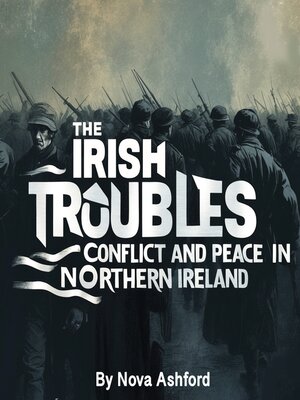
Sign up to save your library
With an OverDrive account, you can save your favorite libraries for at-a-glance information about availability. Find out more about OverDrive accounts.
Find this title in Libby, the library reading app by OverDrive.



Search for a digital library with this title
Title found at these libraries:
| Library Name | Distance |
|---|---|
| Loading... |
The deep divisions that came to define the Troubles in Northern Ireland have their roots in centuries of conflict, conquest, and colonization. The split between the largely Catholic Irish population and the Protestant settlers brought by British rule laid the groundwork for enduring hostility. This divide was not merely religious but deeply political and cultural, with Catholic nationalists largely advocating for a united Ireland, while Protestant unionists were loyal to the British crown and sought to remain part of the United Kingdom. These opposing identities hardened over time, especially in the north, where British colonization during the 16th and 17th centuries planted a Protestant presence in predominantly Catholic lands, most notably in the province of Ulster.
The 1921 partition of Ireland formalized the division, creating Northern Ireland as a separate political entity within the United Kingdom. While the south eventually became the Republic of Ireland, the north remained under British control with a Protestant-majority government. This arrangement was viewed by many Catholics as both illegitimate and oppressive, fostering a sense of exclusion and marginalization. Protestants, in turn, felt under siege by the threat of Irish republicanism and feared losing their political and cultural dominance. The new state was marked from the beginning by systemic discrimination against the Catholic minority in areas such as housing, employment, and political representation.
Tensions simmered for decades, occasionally flaring into violence, but it was in the 1960s that the situation began to unravel. Inspired by civil rights movements elsewhere, Northern Irish Catholics began organizing protests demanding equal treatment and an end to institutionalized bias. The state's heavy-handed response to these demonstrations, combined with Protestant fears of losing control, only intensified the divide.







